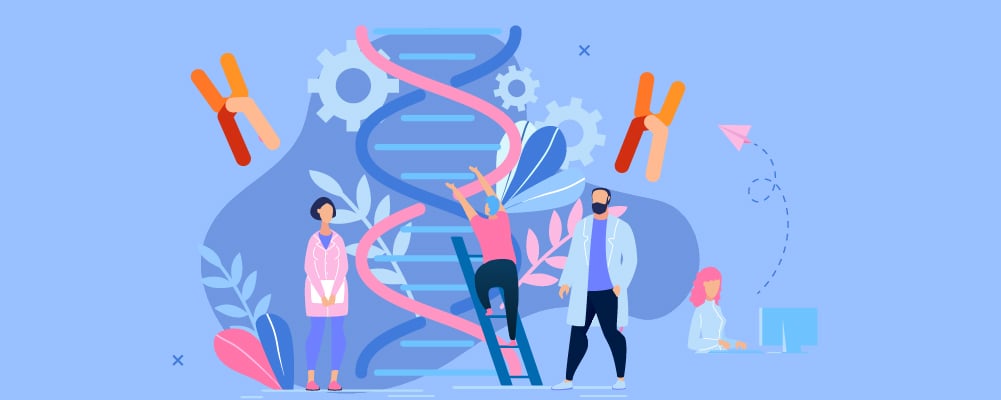
Cloning creates an exact genetic copy of an organism, cell, or DNA fragment. Scientists typically do it by taking the DNA from one organism and inserting it into another organism or a host cell. Reproductive cloning and therapeutic cloning are the two main types of cloning techniques. Reproductive cloning involves creating a whole new organism, whereas therapeutic cloning involves creating cells or tissues for medical purposes. Cloning can create genetically identical animals and produce valuable proteins for medical research. However, cloning is also a controversial topic due to ethical concerns about the manipulation of genetic material and potential unintended consequences.
Preservation of endangered species: Cloning can preserve endangered species at risk of extinction. By creating identical copies of these species, scientists can help maintain biodiversity and prevent the loss of unique genetic traits.
Medical applications: Cloning can produce genetically identical animals for medical research purposes. It can help researchers to develop treatments for diseases, test new drugs, and gain a better understanding of genetic disorders.
Organ transplantation: Cloning can create organs for transplantation. Since the cloned organs will be genetically identical to the recipient’s organs, the body is less likely to reject the transplanted organ. According to Scientific American, cloning can permit the genetic modification of animals for transplanting their cells and organs into humans.
Reproduction: Cloning can also find use in reproduction. For example, it can help infertile couples have children or to produce offspring with desirable genetic traits.
Agriculture: Cloning can create genetically identical animals with desirable traits, such as increased milk production or disease resistance. It can help to improve food production and reduce the use of pesticides and other harmful chemicals. Visiting MyBioSource.com can give you more information.
Top Concerns of Cloning
Ethical concerns: Many people think cloning is unethical because it involves creating life in a laboratory setting. Some see it as playing God. Others are concerned about its potential for abuse, such as creating clones for organ harvesting or other exploitative purposes.
Health concerns: Some scientists think cloning could lead to health problems in the resulting clones. For example, cloned animals have been known to have shorter lifespan and a higher incidence of genetic abnormalities.
Reproductive rights: Cloning raises questions about reproductive rights and the autonomy of individuals to make choices about their bodies. Some worry that cloning can create offspring without the consent of the donor.
Social concerns: Cloning could lead to several social issues, such as creating a new class of genetically engineered individuals people may consider superior to others.
Environmental concerns: Cloning can have unintended consequences on the environment. Releasing cloned organisms into the wild accidentally could disrupt ecosystems or introduce new diseases.
Legal concerns: Cloning is a complex issue raising many legal questions. For example, who would be responsible if a cloned organism caused harm to another living being or the environment?
Conclusion
While the potential benefits of cloning are exciting, there are also significant ethical concerns about it. These include the potential for exploitation of animals, the possibility of unintended consequences such as the emergence of new diseases or the disruption of ecosystems, and social issues.
A beautiful and lively garden can add life to your outdoor space and make it… Read More
Teams working in marketing and digital are familiar with the challenges of striking a balance… Read More
DafaNews, a prominent platform providing real-time sports updates and in-depth analysis, has launched “The Game… Read More
Travel has a way of enriching the soul, offering experiences that shape perspectives and create… Read More
The commercial real estate industry is changing rapidly, driven by technological advancements, sustainability initiatives, and… Read More
Zoom Tasks, a new AI-powered task management tool integrated into Zoom Workplace, has been formally… Read More